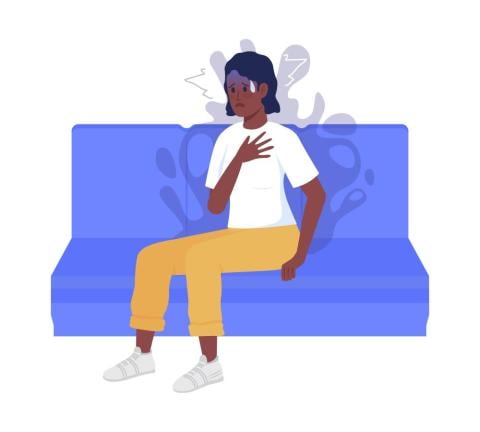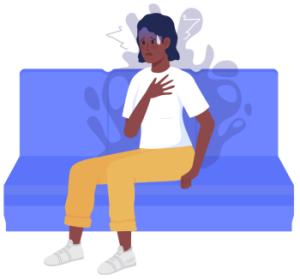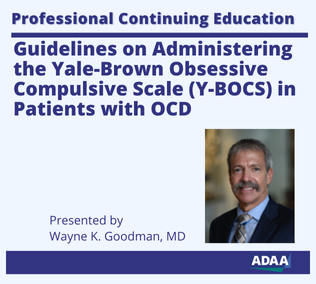Medication for Treatment of OCD: Understanding the Options
Medication for Treatment of OCD: Understanding the Options

Obsessive-compulsive disorder (OCD) is a complex diagnosis, with many distinct manifestations and varied degrees of severity. Though OCD symptoms can severely affect functioning and quality of life, many treatments have been shown to reduce suffering.
Evidence-based interventions for OCD include both medication and non-pharmacologic interventions. For some patients, psychotherapeutic interventions such as cognitive-behavioral therapy (CBT) and exposure and response prevention (ERP) can adequately manage symptoms. However for other patients, these interventions may prove insufficient, and in such cases, medication should be considered.
Although primary care physicians and other non-specialists in mental health feel comfortable managing less complicated anxiety-related disorders, OCD is a more complex diagnosis and ideally should be managed by a psychiatrist. Before initiating medication, the psychiatrist will first do a thorough assessment to ensure that the diagnosis of OCD is accurate, and to determine the presence of coexisting conditions that may complicate the treatment.
The recommended initial pharmacologic treatment for OCD is an antidepressant from the class known as selective serotonin reuptake inhibitors (SSRIs). This class includes some of the most well-known and commonly prescribed antidepressants, including:
- Fluoxetine
- Paroxetine
- Sertraline
- Fluvoxamine
- Citalopram
- Escitalopram
The medication is started at a low dose, and it is gradually increased, as needed and tolerated. Evidence suggests that relatively high dosages of an antidepressant are needed to adequately manage OCD. Therefore, it may take several months to reach a point where the antidepressant can provide a significant degree of clinical benefit.
Other types of antidepressants are sometimes considered. This may be done when the SSRI does not provide sufficient benefit or causes side effects that are hard to tolerate. Another class of antidepressants called serotonin-norepinephrine reuptake inhibitors (SNRIs) is sometimes considered. SNRIs tend to be less likely to cause certain side effects that can occur with SSRIs (for example – sedation and weight gain). However, the evidence base supporting the use of SNRIs for OCD is not as strong.
Another medication with which some patients may do well is an antidepressant called clomipramine, which is from an older class of antidepressants called tricyclic antidepressants. (TCAs). The effectiveness of clomipramine for OCD is comparable to that of SSRIs. However the TCAs are more likely to cause adverse reactions called anticholinergic side effects (examples may include things such as dry mouth, constipation, and vision changes). Therefore, clomipramine tends to be considered only when a patient has had unsuccessful trials of several other antidepressants.
In some situations, patients may receive partial benefit from an antidepressant, though they do not achieve full remission of the OCD with even a high dose of the medication. In such cases, the psychiatrist may consider adding a second medication to the antidepressant. This is an intervention often called augmentation.
Different types of medications can be used to augment an antidepressant. For OCD, one category of medication commonly used for this purpose is a class called atypical antipsychotics. This term is somewhat of a misnomer and can evoke many questions and concerns from patients. This class of medication was initially approved to treat schizophrenia and similar illnesses in which patients experience symptoms that are psychotic in nature (such as hallucinations or delusions).
However, it has been found that atypical antipsychotics have many uses beyond treating schizophrenia. They are commonly used to treat mood disorders such as bipolar disorder and major depressive disorder. Research has also found that atypical antipsychotics are one of the most effective types of medication for augmenting an antidepressant for the treatment of OCD.
Within the family of atypical antipsychotics, several options are available, and they vary significantly in their therapeutic effect and side effect profile. The specific side effect profile will often influence which particular agent a psychiatrist will choose. For example, some atypical antipsychotics are sedating and can be helpful for patients who are experiencing insomnia at night. Conversely, patients who are more concerned about potential sedation may do better with an antipsychotic that has more of a stimulating quality.
If patients with OCD do not experience remission of symptoms even after trying several different medications, they and their psychiatrist will discuss next steps. If the patient is already not doing psychotherapeutic interventions such as CBT and ERP, adding these on can be extremely helpful. The psychiatrist should also review with the patient whether additional psychiatric or medical diagnoses could be impeding the treatment.
Although OCD can be a complex and challenging diagnosis, many evidence-based treatment options are available. A comprehensive evaluation and consultation with a psychiatrist can help patients understand which treatments will be most appropriate for their particular circumstance.
This post is presented in collaboration with ADAA's OCD and Related Disorders SIG. Learn more about the SIG.





















